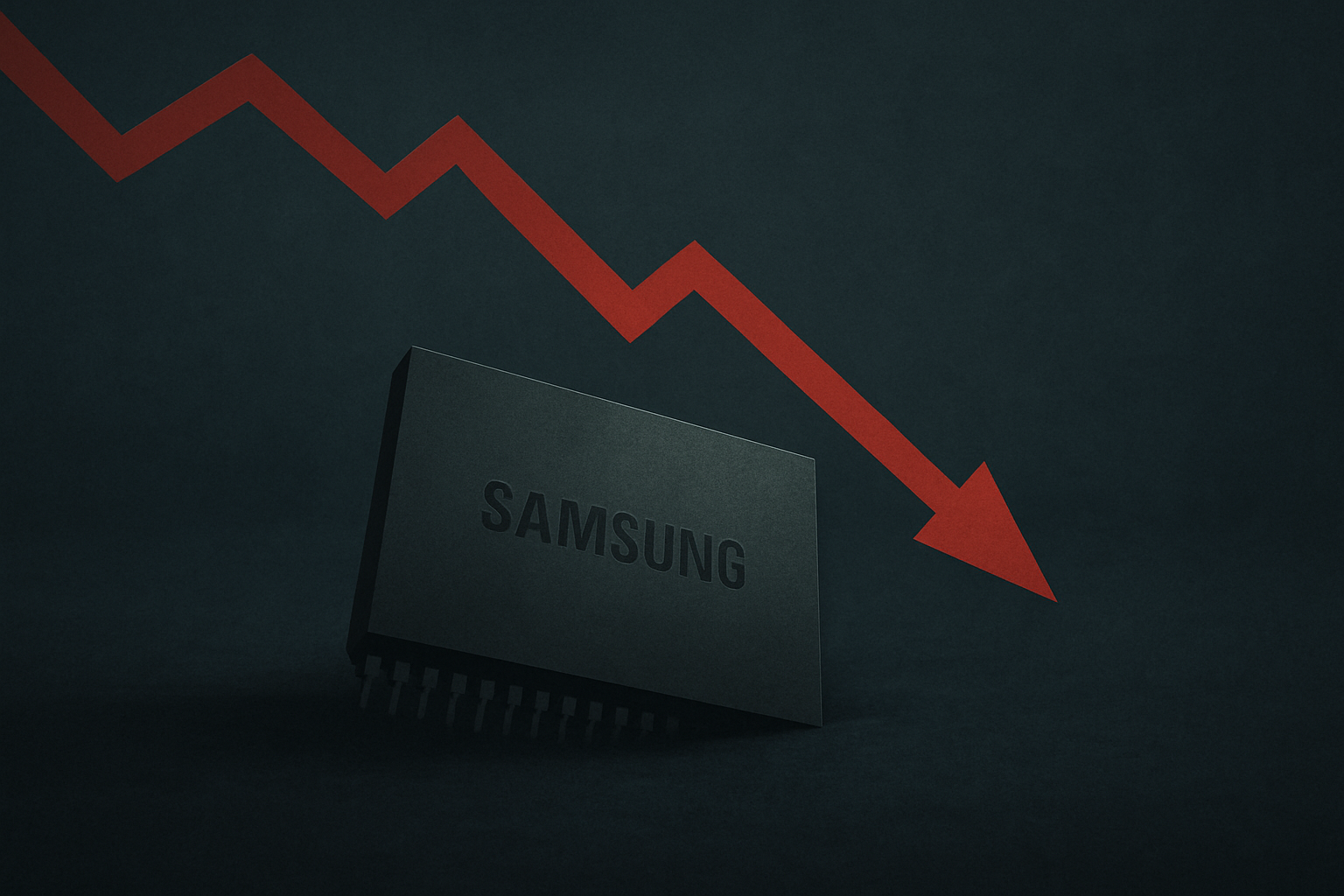Well, I'll be damned. Samsung just dropped quarterly numbers that aren't just bad—they're the financial equivalent of falling down an elevator shaft. The Korean tech giant's latest earnings report shows their operating profit absolutely cratering to 4.7 trillion won (roughly $53.5 billion if you're curious), down more than half from last year's figures.
But here's the real kicker: their semiconductor business—long the golden goose of Samsung's sprawling empire—imploded by a mind-boggling 94 percent.
Ninety-four percent! That's not a downturn. That's not even a collapse. That's the business equivalent of a neutron star.
I've been covering tech earnings for over a decade, and I can't remember seeing a core business unit at a major player take this kind of hit without some kind of natural disaster or fraud investigation being involved. This is Samsung we're talking about—not some fly-by-night operation trying to hawk blockchain-enabled toasters.
The semiconductor industry has always been cyclical, sure. Boom and bust comes with the territory. It's what industry veterans sometimes call (and I heard this phrase first from a tipsy Intel exec at CES years ago) "the silicon roller coaster." But even by those standards, this drop is exceptional.
Look at what's happening here: Samsung blamed "inventory value adjustments in memory" for much of the carnage. Translation from corporate-speak: "We've got warehouses stuffed with chips nobody wants to buy right now, and we had to mark them down to fire-sale prices."
The timing couldn't be more ironic. While Samsung's semiconductor business is in freefall, Nvidia's stock is performing like it discovered the fountain of youth. The chip market has become deeply bifurcated—AI chips are printing money faster than the Fed, while memory and traditional processors are being treated like last year's smartphone model.
There's something else tucked into Samsung's explanation that deserves attention. They mentioned "one-off costs related to the impacts of export restrictions related to China." Reading between the lines... geopolitics is throwing wrenches into their carefully calibrated business machinery. The tech cold war between Washington and Beijing is forcing companies like Samsung to navigate an increasingly complex maze of who can sell what technology to whom.
(I spoke with three semiconductor analysts this morning who confirmed this geopolitical angle isn't getting nearly enough attention. One called it "the sleeper issue that could reshape the entire industry.")
The question now is whether Samsung's chip disaster is company-specific or the canary in the coal mine for a broader semiconductor downturn. Memory has always been the most brutally cyclical segment of the chip market—the prices swing wildly based on supply and demand imbalances.
Samsung's executives are probably rethinking those ambitious expansion plans right about now. Nothing quite focuses the mind like watching 94% of your profits vanish in twelve months. Those multi-billion-dollar fabrication plants they were planning? Don't be surprised if some of those projects suddenly get "strategic reviews."
In the meantime, Samsung shareholders are left wondering how long this particular winter will last. The semiconductor industry always recovers—eventually. But "eventually" can feel like an eternity when you're watching quarterly reports like this one.
I remember talking to a veteran chip industry executive back in 2019 who told me, "In semiconductors, we always overbuild. Always. We can't help ourselves." That cyclical pattern—the feast-or-famine nature of the business—is playing out in textbook fashion with Samsung right now.
The pendulum will swing back. It always does. But man... 94 percent? That's gonna leave a mark.




